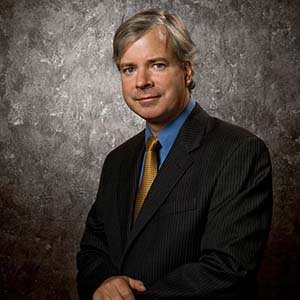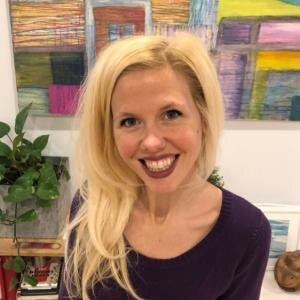Ron and Ed welcomed back for the third time Dr. Jules Goddard from London Business School. His new book (with David Giles Lewis and Tamryn Batcheller-Adams) entitled Mavericks guides you through the five characteristics that you can develop to become a maverick leader. From passionate belief, an undeterred attitude, being resourceful, being directional and finally experimenting, these characteristics are the blueprint for you to grow into an iconic and positive change maker. The focus is not on what becoming a leader can do for you, but on what you can do to make the world a better place.
Many of our listeners know him, but here is a bit more about Dr. Jules Goddard:
Dr. Jules Goddard earned his MA at Oxford, an MBA from Wharton, and his PhD from London Business School. He's a Guest Lecturer at INSEA and formerly Gresham Professor of Commerce and Mercers School Memorial Professor at The City University. He is currently Research Associate of the Management Lab MLab at London Business School. He's a teacher, writer and consultant in the areas of business creativity, strategic thinking, leadership and corporate transformation.
Here are the show notes. Use these to follow along while listening to the show:
Dr. Jules Goddard has been with us twice before. The first time was episode 27 and we discussed his book, "Uncommon Sense, Common Nonsense" https://www.thesoulofenterprise.com/27
During his second appearance, we caught up with him effectively mid-pandemic in episode 315 https://www.thesoulofenterprise.com/315
Regarding his new book, Mavericks, Dr. Goddard says: “We are all mavericks but not all of us are able to express our inner self. The world is short on mavericks, those who are entrepreneurs in more ways than just business.”
Regarding Mavericks from Dr. Jules Goddard: We need candidness is this complex modern world. Mavericks are true to themselves and hopefully can express it with a bit more confidence.
“There is a sense that individualism is a fairly recent phenomenon. We welcome dissent. We like difference in opinion. This is part and parcel of the whole business of being a Maverick.” —Dr. Jules Goddard
What is the etymology of the word Maverick? It is from the name of Samuel A. Maverick (1803–70), a Texas rancher who did not brand his cattle (which was considered very nonconformist at the time).
Are Maverick leaders born or made? From Dr. Goddard: “They are educated. They are made. We typically contrast nature vs nurture but the third element is CHOICE.”
“Mavericks are recognized less by their personality than by their character.” —Dr. Jules Goddard
Check out our Patreon show at Patreon.com/TSOE featuring bonus and commercial-free episodes. Now sponsored by 90 Minds! “More minds are better than one!” Check them out at 90Minds.com
“To solve a problem, you first have to specify a problem — to specify the problem worth solving.” —Dr. Jules Goddard
From Dr. Goddard: Work with those whom you love working with. They will draw out your skills and interest within. In a setting where you have no power to do the work you love it’s very difficult to find the energy/inspiration to make a difference.
Why is resourcefulness a big differentiator for problem solving? This is common in someone who wants to work with others of a different mindset. In other words, “Mavericks attract other Mavericks.”
When we’re making decisions in business we WANT lots of thoughts. Many decisions go against our own tastes and preferences. So how do we retain loyalty in those instances? Take other’s thoughts seriously and improve upon them.
“Maverick leaders are inspired by a problem in need of a solution.” —Dr. Jules Goddard
“Entrepreneurs…Mavericks…act on the world in order to think rather than think before acting. We discover what we believe to be true by trying a ton of stuff out. We don’t invest too much time on analysis, thought, and planning.” —Dr. Jules Goddard
“In children, playfulness is the basis upon which a child learns fast. A fear of even making the slightest mistake disables us from being successful later on.” —Dr. Jules Goddard
From Dr. Goddard: “We do not honor our greatest people. We very rarely thank them. The modern tendency is to believe they are greedy, exploitative, or lucky. But they put themselves out in the world and created a difference.”
Mentioned by Ron today, “Meh, good enough.” (image below)
How can organizations be created with the culture and structure to support Maverick leadership? The question should be: Why don’t the insides of organizations look more like the outside of organizations. For example, why don’t we bring more market forces internally?
“All truths come through metaphor.” —Dr. Jules Goddard on things in business that benefit from a “successful crash” of an idea that simply does not work.
A big THANK YOU to Dr. Jules Goddard. Be sure to check out his new book, Mavericks, and learn to make a difference! https://amzn.to/3uZJ96j
Here is a collection of articles from Dr. Jules Goddard for further reading as well: https://www.london.edu/think/search#q=goddard&sort=%40articledate%20descending
Bonus Content is Available As Well
Did you know that each week after our live show, Ron and Ed take to the microphone for a bonus show? Typically, this bonus show is an extension of the live show topic (sometimes even with the same guest) and a few other pieces of news, current events, or things that have caught our attention.
This week was bonus episode 388 - “Mediocretes”. Here are a few links discussed:
Developers Rush to Buy Out Owners in Aging Miami Buildings After Area Condo Collapse - WSJ
Americans Will Spend 6.5 Billion Hours on Income Taxes This Year
Warren wants details from TurboTax on its free filing program | Accounting Today
Click the “FANATIC” image to learn more about pricing and member benefits.














